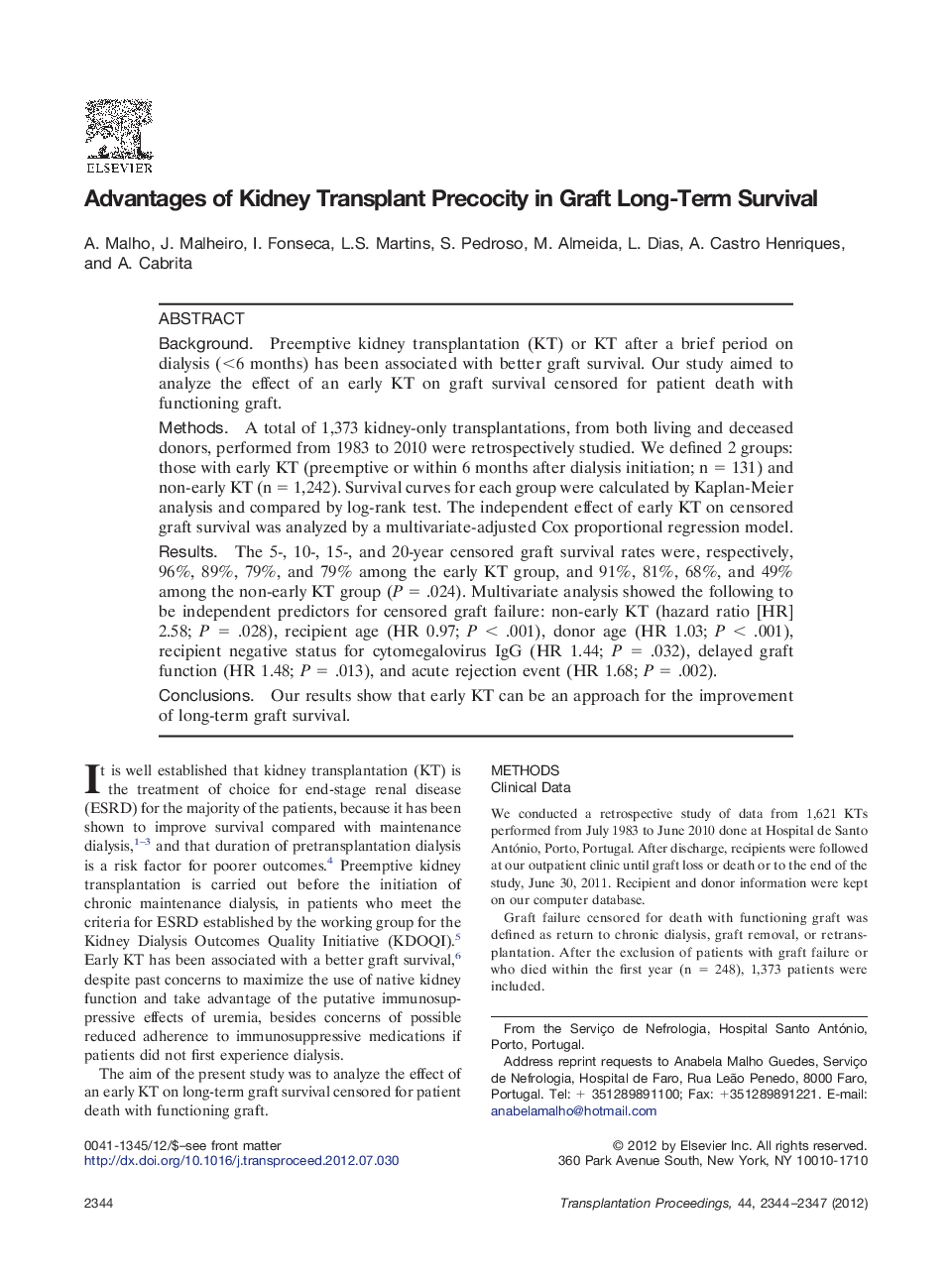| Article ID | Journal | Published Year | Pages | File Type |
|---|---|---|---|---|
| 6248009 | Transplantation Proceedings | 2012 | 4 Pages |
BackgroundPreemptive kidney transplantation (KT) or KT after a brief period on dialysis (<6 months) has been associated with better graft survival. Our study aimed to analyze the effect of an early KT on graft survival censored for patient death with functioning graft.MethodsA total of 1,373 kidney-only transplantations, from both living and deceased donors, performed from 1983 to 2010 were retrospectively studied. We defined 2 groups: those with early KT (preemptive or within 6 months after dialysis initiation; n = 131) and non-early KT (n = 1,242). Survival curves for each group were calculated by Kaplan-Meier analysis and compared by log-rank test. The independent effect of early KT on censored graft survival was analyzed by a multivariate-adjusted Cox proportional regression model.ResultsThe 5-, 10-, 15-, and 20-year censored graft survival rates were, respectively, 96%, 89%, 79%, and 79% among the early KT group, and 91%, 81%, 68%, and 49% among the non-early KT group (P = .024). Multivariate analysis showed the following to be independent predictors for censored graft failure: non-early KT (hazard ratio [HR] 2.58; P = .028), recipient age (HR 0.97; P < .001), donor age (HR 1.03; P < .001), recipient negative status for cytomegalovirus IgG (HR 1.44; P = .032), delayed graft function (HR 1.48; P = .013), and acute rejection event (HR 1.68; P = .002).ConclusionsOur results show that early KT can be an approach for the improvement of long-term graft survival.
